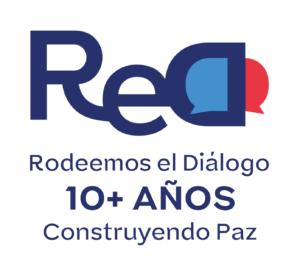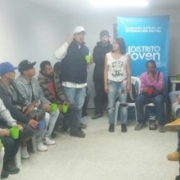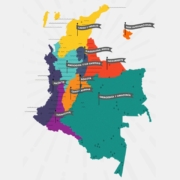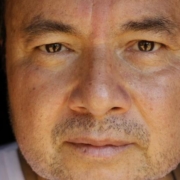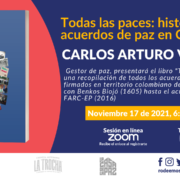Never underestimate the power of Dialogue!
ReD Non-Workshop at University of Cambridge
21st November 2017
The session in Cambridge took place in the Centre of Latin American Studies (CLAS) with participants from within CLAS, but also from the Development Studies, Architecture and English departments. The Reconciliation Non-Workshop aimed to introduce the ideas and activities of ReD, first framing these in the context of Colombia, but asking participants how these same ideas could be used to address emotional and political polarisation in British society.

The framing
We began the session with a presentation, explaining briefly the recent history of the conflict, peace referendum and Peace Process between the Colombian government and the FARC, but also touching on the negotiations between the government and ELN and some of the reasons for the success of the “No” vote in October 2016. We talked about the issue of impunity and the struggles with implementation of the Peace Process.
This was followed by a round of questions, discussing the activities of ReD. We particularly talked about the lack of access to experts and expert opinions that many Colombians face, and the perception that some kinds of knowledge belong to certain classes of society. We talked about how Conversatorios, Tertulias and the Desayunos de Paz can help to redress these imbalances, as well as the presence of ReD activities in the different regions of Colombia and peripheral neighbourhoods in Bogota.
The challenge of reconciliation
One participant made a comparison with the Northern-Irish Peace Process, and we questioned how the process of reconciliation was framed in this context, debating if this could help us to adapt and reframe ReD activities for the British context.
The intensity and complexity of the Colombian context was a key area of discussion, and we talked about the difficult nature of forgiveness in specific contexts. The highly emotional, and traumatic experiences of many victims is something that many people in Colombia (and internationally) grapple with when accepting the FARC reintegration into society and participation in politics. Questions surfaced such as: How much is too much? How do we draw a line and begin to negotiate? How can these people live alongside each other?
Role play: negotiating identity in the struggle for reconciliation
The second part of the session involved a dynamic extracted from the ReD Non Workshop proposal. Participants were asked to think of somebody they admired, think of characteristics of this person that they identify with and then present this to the group. Following this they identified animals that represented them, also explaining why. The levels of personal engagement with this activity varied, with some participants choosing animals based on tastes and likes, whilst others began to analyse their own personalities.
The participants were then separated into two smaller groups to discuss and decide on one animal that represented each group. After some discussion they settled on a panda and a cat. The entire group then worked together, negotiating to decide on one of these animals to represent the entire group. The main sticking issues were the social characteristics of the animal. The solitary, quiet nature of pandas was contested which resulted in the entire group switch to polar bear, a family-focused animal. Participants were invited to analyse this negotiation process, saying what they had had to give or take to reach an agreement.
One participant described the process as the gradual widening of frames. He said that you look at a problem in a discussion again and again, gradually shifting and changing the frame or lens until it fits the problem. This expresses the struggle of reconciliation and also the flexibility and gradual shifts in attitudes that make reaching a new conclusion possible.
A message from one of the participants
“I really enjoyed learning about ReD and what they are doing currently to help reconciliation. It helped me to think about the wider problems in Colombian society, but also relatable to the British context with Brexit. Activities and environment was friendly and fun.”
